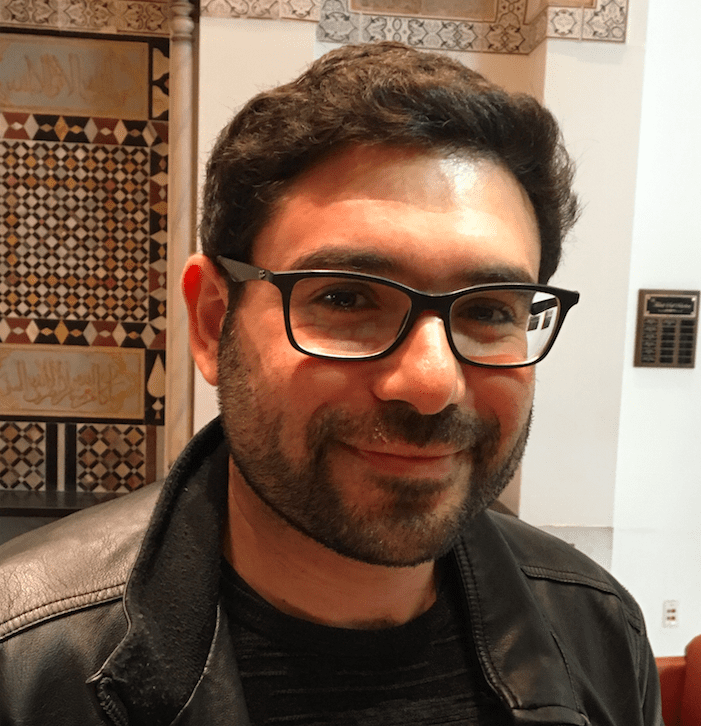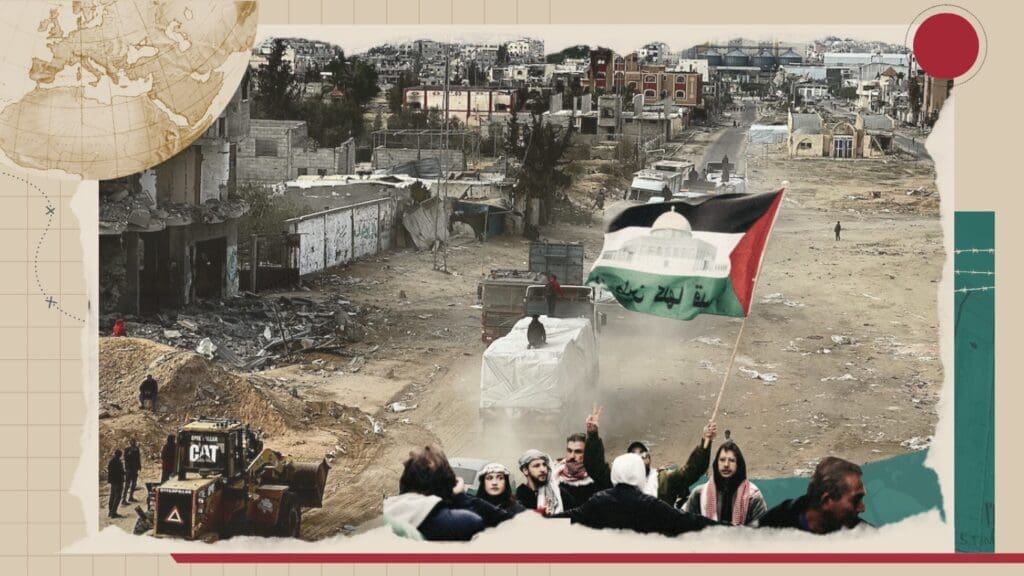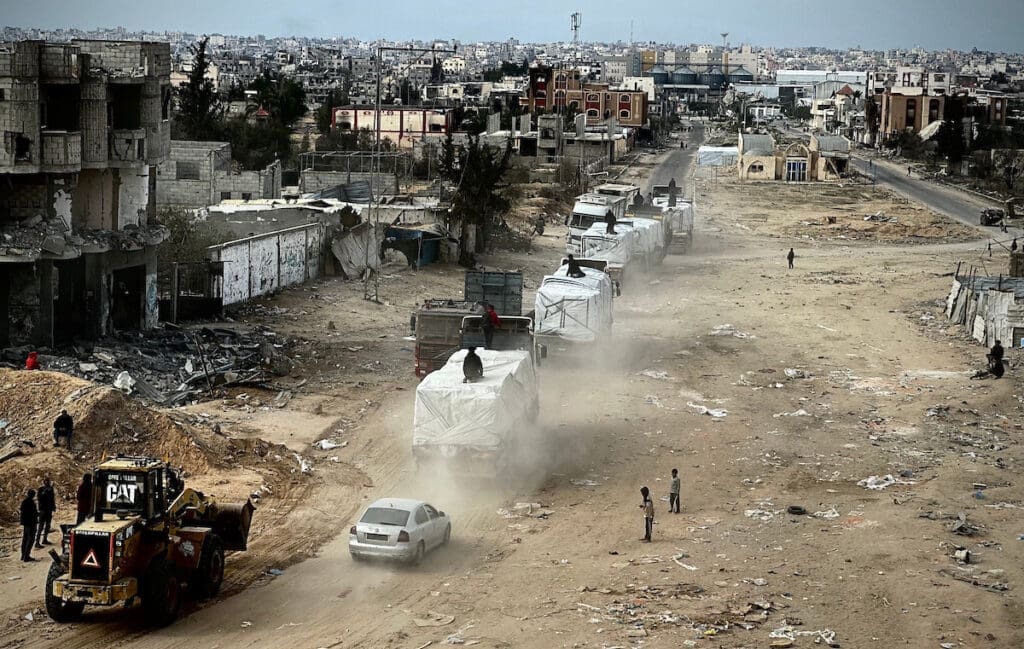Jehad Abusalim is currently a PhD student in the History and Hebrew and Judaic Studies joint program at New York University. His main area of research is Palestinian and Arab perceptions of the Zionist project and the Jewish question before 1948. He also studies the political and social history of the Gaza Strip and the impacts of the Palestinian Nakba, and how it radically impacted the political, social, demographic, and economic realities of Gaza.
From this author
In this roundtable discussion, Dena Qaddumi and Jehad Abusalim examine the challenges and complexities of rebuilding Gaza amid the Israeli regime’s ongoing genocidal warfare. They explore the structural obstacles imposed by the continuing Israeli blockade, questioning the feasibility of meaningful reconstruction under settler-colonial occupation.
Analyzing Gaza’s repeated cycles of destruction and rebuilding, Qaddumi and Abusalim expose a long history of foreign intervention, profiteering, and the prioritization of high-visibility projects by international donors—practices that sideline Palestinians and strip them of agency. In contrast, the discussion highlights alternative Palestinian-led reconstruction models that prioritize indigenous knowledge and local needs, ensuring the preservation of Gaza’s identity, heritage, and self-determination.
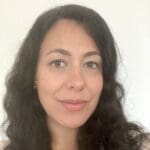
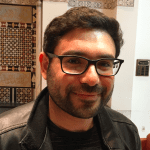
In this policy lab, Dena Qaddumi and Jehad Abusalim join host Tariq Kenney-Shawa to discuss what the ceasefire in Gaza means for Palestinians and the state of the physical and political landscape that determines what comes next.











